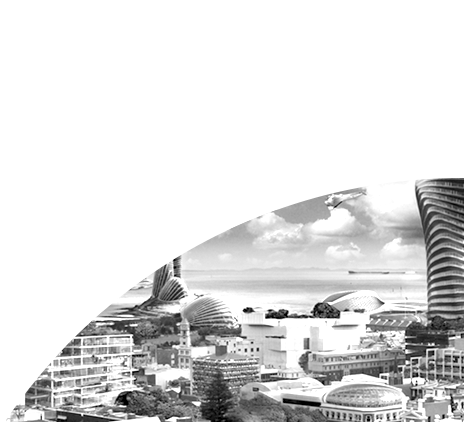-
Deals Services
Η ομάδα Deals Services της Grant Thornton χαρακτηρίζεται από την απαραίτητη εμπειρία και τεχνογνωσία για τον ολοκληρωμένο έλεγχο σε όλα τα στάδια μιας συναλλαγής.
-
Technology
Η Grant Thornton και το τμήμα Technology, μέσω της τεχνογνωσίας και εμπειρίας που διαθέτει, προσφέρει υπηρεσίες που βοηθούν τις επιχειρήσεις να προσαρμοστούν σε ένα μεταβαλλόμενο τεχνολογικό περιβάλλον και να επαναπροσδιορίσουν τον τρόπο λειτουργίας τους.
-
Strategy and Investments
Στο τμήμα του Strategy and Investments προσφέρουμε συμβουλές για τη διαχείριση κεφαλαίων, τον στρατηγικό σχεδιασμό και υπηρεσίες λειτουργικής βελτίωσης.
-
Environmental, Social, Governance, Risk & Compliance
Στο τρέχον επιχειρηματικό και κανονιστικό περιβάλλον, οι επιχειρήσεις φιλοδοξούν να ανταποκριθούν αποτελεσματικά στις απαιτήσεις του σήμερα, και να δημιουργήσουν αξία με βιώσιμους όρους.

-
Audit
Οι ομάδες ελέγχου της Grant Thornton απαρτίζονται από άρτια καταρτισμένα και εξειδικευμένα στελέχη με μεγάλη εμπειρία στον έλεγχο.
-
Business Growth Advisory
Στην Grant Thornton, κατανοούμε τη σημασία της εναρμόνισης της χρηματοοικονομικής πληροφόρησης με τις κανονιστικές αλλαγές και την ανάγκη για ακριβή χρηματοοικονομική πληροφόρηση και συμβουλευτική υποστήριξη.

-
Φορολογία επιχειρήσεων
Οι υπηρεσίες φορολογίας επιχειρήσεων της Grant Thornton παρέχουν συμβουλές και λύσεις σε όλα τα θέματα που πιθανώς να έχει η επιχείρησή σας.
-
Φορολογική συμμόρφωση
Τα στελέχη της φορολογικής συμμόρφωσης εταιριών διαθέτουν πολυετή εμπειρία, τόσο σε πολυεθνικές όσο και σε μεγάλες εγχώριες εταιρίες όλων των κλάδων δραστηριότητας
-
Διεθνής φορολογία
Η Grant Thornton γνωρίζει ότι οι φορολογικών εξελίξεων προς όφελος της επιχείρησης σας είναι ένας παράγοντας επιτυχίας σε διεθνές επίπεδο.
-
Ενδοομιλικές συναλλαγές
Η Grant Thornton μπορεί να βοηθήσει τόσο για τις εγχώριες, όσο και για τις πολυεθνικές επιχειρήσεις στη λήψη στρατηγικών αποφάσεων, στον σχεδιασμό και στη διαχείριση του κινδύνου.
-
Υποστήριξη σε φορολογικούς ελέγχους
Η Grant Thornton μπορεί να εξασφαλίσει ότι θα είστε προετοιμασμένοι για τους φορολογικούς ελέγχους και πιθανές διαφορές.
-
Private Client Tax Services
Στην Grant Thornton, συνεργαζόμαστε με τους πελάτες μας για να δημιουργήσουμε φορολογική στρατηγική και σωστή τεκμηρίωση κρίσιμων ενεργειών του παρελθόντος με τον "φάκελο υπεράσπισης"
-
Έμμεσοι φόροι
Στην Grant Thornton πιστεύουμε ότι οι συνέπειες των έμμεσων φόρων στις επιχειρηματικές αποφάσεις θα πρέπει να λαμβάνονται εξίσου σοβαρά υπόψη όπως και κάθε άλλο κόστος της επιχείρησης
-
Φορολογική αναδιοργάνωση επιχειρήσεων
Είτε η εταιρία σας βρίσκεται σε μια περίοδο σημαντικής αναδιάρθρωσης ή αλλαγών στην στρατηγική κατεύθυνση η Grant Thornton Tax είναι η σωστή επιλογή στους φορολογικούς συμβούλους.
-
Προληπτικός φορολογικός έλεγχος επιχειρήσεων (Tax Due Diligence)
Ο προληπτικός φορολογικός έλεγχος μπορεί να βοηθήσει την εταιρία σας να εντοπίσει και να αξιολογήσει όλες τις πιθανές φορολογικές επιπτώσεις που μπορούν να έχουν προκύψει από μια συναλλαγή.
-
Βελτιστοποίηση του παραγωγικού μοντέλου
Ενημερωθείτε σχετικά με την βελτίωση του παραγωγικού μοντέλου της εταιρίας σας με αναδιοργάνωση των παραγωγικών σας δραστηριοτήτων από την Grant Thornton.
-
Υπηρεσίες Διεθνώς Μετακινούμενου Προσωπικού
Η διεθνής κινητικότητα ταλέντων είναι βασικό στοιχείο μιας επιτυχημένης παγκόσμιας επιχείρησης και μαζί της συνοδεύονται από προκλήσεις και κινδύνους, καθώς και ευκαιρίες.

-
Accounting & Tax Compliance Services
Η μεταφορά υποστηρικτικών και περιφερειακών λειτουργιών εκτός εταιρίας και η ανάθεσή τους σε ειδικούς εξωτερικούς συνεργάτες (Business Process Outsourcing) αποτελεί πλέον βέλτιστη πρακτική για τις εταιρίες εκείνες που επιδιώκουν τη μέγιστη δυνατή αποτελεσματικότητα.
-
HR & Payroll services
Η διαχείριση της μισθοδοσίας είναι μία από τις πιο δύσκολες και χρονοβόρες διαδικασίες που αντιμετωπίζει μια εταιρία όταν διαχειρίζεται στοιχεία του προσωπικού της. Οι παρεχόμενες υπηρεσίες μας προσαρμόζονται στις ανάγκες της εκάστοτε εταιρίας, σύμφωνα με το εκάστοτε ασφαλιστικό και εργατικό νομικό πλαίσιο.

-
Τράπεζες
Η αφοσιωμένη ομάδα στην παροχή υπηρεσιών προς τις Τράπεζες και τις εταιρείες κινητών αξιών έχει κατανείμει την εμπειρία της και τους πόρους της με τέτοιο τρόπο ώστε να ανταποκρίνεται έγκαιρα και αποτελεσματικά στις ανάγκες και προσδοκίες των πελατών μας.
-
Ασφαλιστικός Κλάδος
Ως ελεγκτές πιστεύουμε στην προστιθέμενη αξία των ελεγκτικών μας υπηρεσιών υιοθετώντας μία επιχειρησιακή προσέγγιση σε κάθε ελεγκτικό έργο.
-
Εταιρείες Διαχείρισης Κεφαλαίων
Μέσα από ένα ευρύ φάσμα ολοκληρωμένων συμβουλευτικών υπηρεσιών προσδιορίζουμε τις ανάγκες των πελατών μας και προσφέρουμε λύσεις που μπορούν να εφαρμοστούν άμεσα και αποτελεσματικά.
-
Φορείς Κεντρικής Κυβέρνησης
Η Grant Thornton προσφέρει υπηρεσίες σε φορείς κεντρικής κυβέρνησης με σκοπό να αντιμετωπίσουν άμεσα και αποτελεσματικά τις προκλήσεις που έχουν προκύψει.
-
Δημόσιες Επιχειρήσεις & Οργανισμοί
Η Grant Thornton υποστηρίζειι τις Δημόσιες Επιχειρήσεις και Οργανισμούς να αξιολογήσουν τις λειτουργίες τους και να αναβαθμίσουν τις υπηρεσίες τους.
-
Φορείς Τοπικής Αυτοδιοίκησης
Η Grant Thornton προσφέρει ελεγκτικές και συμβουλευτικές υπηρεσίες για την υποστήριξη των φορέων τοπικής αυτοδιοίκησης στην αντιμετώπιση των προκλήσεων.
-
ΕΣΠΑ και Ειδικές Υπηρεσίες Διαχείρισης
Η εξειδικευμένη ομάδα στελεχών της Grant Thornton προσφέρει υπηρεσίες Τεχνικής Βοήθειας για τα προγράμματα που διαχειρίζονται οι Ειδικές Υπηρεσίες.
-
Φορείς Δημόσιας Υγείας
Η Grant Thornton αποτελείται από έμπειρους επαγγελματίες που στοχεύουν στην παροχή ολοκληρωμένων υπηρεσιών σε όλα τα επίπεδα του δημοσίου συστήματος υγείας.
-
Ασφαλιστικά Ταμεία
Το τμήμα Δημόσιου Τομέα της Grant Thornton παρέχει υψηλού επιπέδου ελεγκτικές και και συμβουλευτικές υπηρεσίες υποστήριξης στα ασφαλιστικά ταμεία.
-
Τράπεζες
Η αφοσιωμένη ομάδα στην παροχή υπηρεσιών προς τις Τράπεζες και τις εταιρείες κινητών αξιών έχει κατανείμει την εμπειρία της και τους πόρους της με τέτοιο τρόπο ώστε να ανταποκρίνεται έγκαιρα και αποτελεσματικά στις ανάγκες και προσδοκίες των πελατών μας.
-
Ασφαλιστικός Κλάδος
Ως ελεγκτές πιστεύουμε στην προστιθέμενη αξία των ελεγκτικών μας υπηρεσιών υιοθετώντας μία επιχειρησιακή προσέγγιση σε κάθε ελεγκτικό έργο.
-
Εταιρείες Διαχείρισης Κεφαλαίων
Μέσα από ένα ευρύ φάσμα ολοκληρωμένων συμβουλευτικών υπηρεσιών προσδιορίζουμε τις ανάγκες των πελατών μας και προσφέρουμε λύσεις που μπορούν να εφαρμοστούν άμεσα και αποτελεσματικά.
-
Φορείς Κεντρικής Κυβέρνησης
Η Grant Thornton, αξιοποιώντας τη μακρόχρονη εμπειρία της και την εμπειρία του δικτύου της από την υλοποίηση έργων σε φορείς κεντρικής κυβέρνησης, είναι έτοιμη να αναπτύξει την κατάλληλη ομάδα έργου που θα εργαστεί προκειμένου να προσδιοριστεί η λύση – υπηρεσία εκείνη που θα συμβάλει στην επίτευξη των στόχων που έχουν τεθεί για κάθε φορέα.
-
Δημόσιες Επιχειρήσεις & Οργανισμοί
Το τμήμα Public Sector της Grant Thornton μπορεί να υποστηρίξει τις Δημόσιες Επιχειρήσεις και Οργανισμούς να αντιμετωπίσουν τις προκλήσεις που τίθενται λόγω των σημερινών απαιτήσεων της οικονομίας.
-
Φορείς Τοπικής Αυτοδιοίκησης
Η Grant Thornton προσφέρει ελεγκτικές και συμβουλευτικές υπηρεσίες για την υποστήριξη των φορέων τοπικής αυτοδιοίκησης στην αντιμετώπιση των προκλήσεων.
-
ΕΣΠΑ και Ειδικές Υπηρεσίες Διαχείρισης
Η εξειδικευμένη ομάδα στελεχών της Grant Thornton μπορεί να προσφέρει υπηρεσίες Τεχνικής Βοήθειας κατά το στάδιο του σχεδιασμού, της υλοποίησης, της διοίκησης και του ελέγχου των προγραμμάτων και έργων που διαχειρίζονται οι Ειδικές Υπηρεσίες Διαχείρισης.
-
Φορείς Δημόσιας Υγείας
Η ομάδας στελεχών της Grant Thornton αποτελείται από έμπειρους επαγγελματίες που στόχο έχουν την παροχή ολοκληρωμένων υπηρεσιών σε όλα τα επίπεδα του δημοσίου συστήματος υγείας.
-
Ασφαλιστικά Ταμεία
Tο Τμήμα Public Sector με τα έμπειρα στελέχη που διαθέτει, μπορεί να υποστηρίξει τα ασφαλιστικά ταμεία παρέχοντας τις κατάλληλες ελεγκτικές και συμβουλευτικές υπηρεσίες που θα απαντήσουν στις ανάγκες τους.

-
Ξενοδοχειακές & Τουριστικές Υπηρεσίες
Hotels & tourism services
-
Υπηρεσίες Μεταφορών
Η ομάδα ειδικών της Grant Thornton αποτελείται από ανθρώπους με πολυετή επαγγελματική πείρα στον κλάδο των μεταφορών
-
Τεχνολογία της Πληροφορίας
Τα εξειδικευμένα στελέχη μας προσφέρουν υποστήριξη στην επιχείρησή σας σε κάθε βήμα, σε οποιαδήποτε φάση του κύκλου ζωής της.
-
Μέσα Μαζικής Ενημέρωσης
Από την αρχή, θα διαπιστώσετε ότι κατανοούμε τις σημερινές και τις μελλοντικές ανάγκες της επιχείρησής σας, χάρη στη δέσμευση και την εμπειρία που έχουμε στον κλάδο των μέσων επικοινωνίας.
-
Τηλεπικοινωνίες
Οι άνθρωποι μας σας προτείνουν τις καλύτερες εμπορικές και ρεαλιστικές λύσεις που ανταποκρίνονται στον πραγματικό κόσμο του κλάδου των τηλεπικοινωνιών.
![digital disruption]() Disruption is a wonderful thing – unless you’re on the wrong end of it. Controversial web commentator Andrew Keen outlines where radical technology is a threat to mid-sized businesses.
Disruption is a wonderful thing – unless you’re on the wrong end of it. Controversial web commentator Andrew Keen outlines where radical technology is a threat to mid-sized businesses.
I recently interviewed Hans Vestberg, the CEO of Swedish telecommunications giant Ericsson, who told me that every morning he imagined how he could reinvent his company. Every CEO, particularly of mid-sized companies, should take Vestberg’s wisdom to heart. Digital technology has unleashed a perpetual hurricane of creative economic destruction. Software is not only eating the world, but also many mid-sized businesses. Only the paranoid will survive, and here is why.
1. Timescales have changed
The long term used to be a nebulous dot on the horizon – like the Brazilian economy – that was perpetually about to change everything. But today, time has been so speeded up by technology that whatever once appeared long-term is happening now.
Take, for example, the robot economy – once the preserve of science-fiction writers. Today, however, what is now known as artificial intelligence or machine learning is about to change every industry – from education to healthcare to transportation.
2. The future is here and it’s not evenly distributed
This is a quote from the cyber-punk writer William Gibson, and he was right. From Google’s self-driving cars to Amazon’s drones to the Apple Watch, we are now all living in the perpetual future. And with Moore’s Law showing no sign of ending, more and more seemingly impossible technologies are about to not only be plausible, but inevitable.
These technologies will radically transform entire industries, making some redundant and creating new verticals, new scarcities and new business opportunities.
3. Every company is a technology company
There is no escaping the consequences of technology’s rapid evolution for any business. ‘Ah, but my company isn’t a technology company,’ some CEOs of mid-sized companies will say. ‘We don’t need to worry about technology,’ they will reassure themselves. ‘It doesn’t affect us.’ Wrong.
As Reid Hoffman, the co-founder of LinkedIn and one of Silicon Valley’s most prescient investors has said, every company is now – like it or not – a technology company. From the impact of 3D printing on the traditional manufacturing industry to the impact of wearable technology on the fashion business and self-driving cars on the transportation industry, networked technology is radically disrupting every sector of the economy. Medical, education, government, energy and banking are all about to be revolutionised.
4. The Long Tail was an illusion – the winner takes it all
Many of the internet’s most fervent evangelists promised that the digital revolution would democratise business life, creating more small and mid-sized companies that could all thrive in what has become known as the Long Tail economy.
But the Long Tail is, in truth, a long tale. The digital revolution has created a winner-take-all economy of neo-monopolists like Google, Facebook, Apple and Amazon. Digital technology – particularly the distributed technology of the internet – is creating a new aristocracy of digital companies that are attracting the attention of antitrust legislators in Europe and the United States.
5. The biggest threat of all: monopolies
Mid-sized companies should beware. You are the roadkill of the new economy. ‘Average is over,’ the American economist Tyler Cowen thus wrote about a networked economy characterised by a tiny handful of dominant companies. The impact of this winner-take-all economy on smaller businesses is deeply troubling and CEOs of these smaller companies need to be very worried about the viability of their businesses.
Every industry now is threatened by massively financed upstarts seeking to hollow out an economy traditionally dominated by mid-sized companies. Uber, for example, threatens to sweep away tens of thousands of mid-sized taxi companies. Airbnb may well represent the death knell of thousands of mid-sized hotel chains. That’s why, of course, Uber is now valued at around $40 billion and Airbnb at around $20 billion.
The Internet Is Not the Answer by Andrew Keen is published by Atlantic (£16.99).
Words: Andrew Keen. Illustration © Melvin Galapon
More Strategies for growth...
Strategies for growth is our quarterly update for CEOs that explores ways businesses can navigate the current economic climate and unlock growth. Articles in this issue include:
- Meet your hacker – how to predict cyber crime
- Top five digital disruption threats to your business
- Talking to Professor Brian Cox is inspiring business
- What CEOs can learn from new super mayors
- Crowdfunding for working capital and a new product line
We'll also be posting a further selection of articles from Grant Thornton's Strategies for growth magazine in our Insights section, or you can read them in our digital magazine.
Subscribe to future issues
To subscribe to future editions of Grant Thornton UK quarterly newsletter for CEOs, register your details with us atstrategiesforgrowth@uk.gt.com.

 Disruption is a wonderful thing – unless you’re on the wrong end of it. Controversial web commentator Andrew Keen outlines where radical technology is a threat to mid-sized businesses.
Disruption is a wonderful thing – unless you’re on the wrong end of it. Controversial web commentator Andrew Keen outlines where radical technology is a threat to mid-sized businesses.